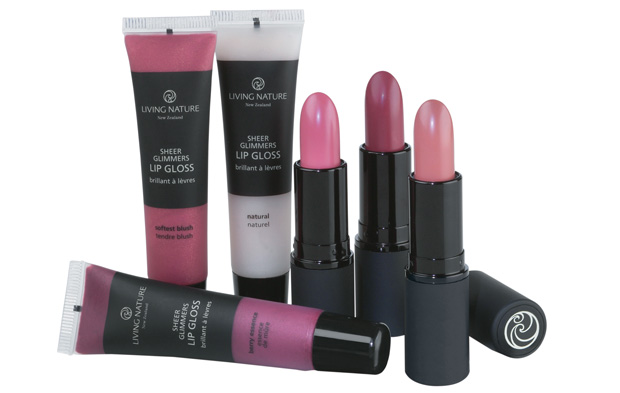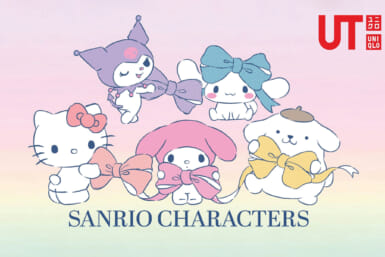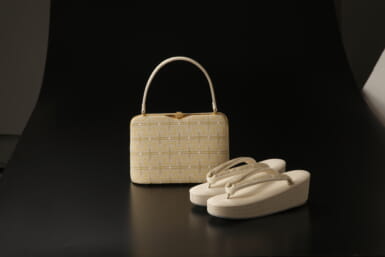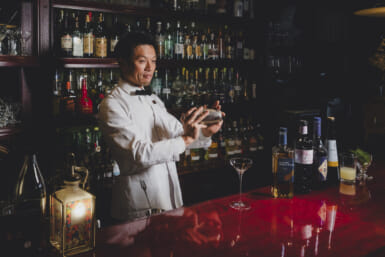by Danielle Rippingale
Don’t worry; this isn’t a new Tokyo trend of green eyeshadow and lip color, but rather a look at the ugly side of the beauty industry, and healthy alternatives that are better for you and the planet. In an earlier column (Sep 4, 2009, read it online if you missed it), I looked at the toxic ingredients commonly used in skin care products. But even for coverts to ‘clean creams,’ don’t forget your makeup bag!
Like skin care products, cosmetics also contain toxic ingredients that adversely affect our health. The good news is there is a new movement in cosmetics with performance brands creating clean and ethical makeup—right here in Japan.
Irrespective of the retail price, most cosmetics use ingredients like synthetic colors, scents, nano-particles and preservatives like formaldehyde (a known carcinogen), making it imperative that consumers read the labels closely. Most pressed and loose powdered makeup uses talc, a cheap and potentially carcinogenic ingredient worth avoiding. These days there are many brands that ‘greenwash’ and market themselves as ‘natural,’ but still use fillers, genetically-modified ingredients, mineral oils, and synthetic preservatives.
In 2007 the Environmental Working Group (EWG) sponsored an independent lab study on 33 leading red lipstick products and found more than 60 percent, including those by L’Oreal, Cover Girl and Christian Dior, contained lead, despite the ingredient not being listed on the label. Particularly dangerous to pregnant women and children, lead is a heavy metal and proven neurotoxin linked to learning and behavioral disorders. Lead was banned from use in house paint decades ago, and yet it is unwittingly ingested by women by virtue of being applied to the lips. Visit www.cosmeticsdatabase.com to check the ingredients in various lipstick brands.
True mineral-based makeup is made from powdered earth-sourced materials like mudstone and iron oxide, and is particularly good for conditions like acne and rosacea because it won’t clog pours and has anti-inflammatory and cooling properties. US-based Alima Pure makes fabulous mineral makeup, and although it’s not currently available in Japan, the company ships internationally, and its website (www.alimapure.com) is worth a visit to download its top ten nasty cosmetic ingredients and for tips on how to apply mineral makeup.
MIMC also makes beautiful mineral-based cosmetics, and with a palette of loose eye shadow powders (¥1,575) ranging from naturals to electric blues, customers will be in awe of mother nature’s ability to create such incredible colors. The range of liquid concealers and powder foundations are available in shades that will suit most skin tones. MIMC mineral cheek colors (¥3,360) not only wear beautifully, but the loose powder applies easily to the cheeks with no brush or mess, making it perfect for use on the go (www.mimc.co.jp, available at Cosme Kitchen in Daikanyama).
Australia-based INIKA sells products that are either certified vegan, certified organic or both, as well as 100 percent halal and cruelty free. INIKA is launching in Japan this year, but those who don’t like to wait can visit www.inika.com.au to learn more about the company’s products. Living Nature of New Zealand is well known for its skin care products, but it also makes wonderful, lead-free lipsticks and glosses (www.livingnature.biz or www.livingnature.com). For those seeking a more neutral palette with some sun protection, fruit based Juice Beauty has delicate and delicious-smelling lip tints with SPF 8. The Lip Trio (¥3,570) is available at Cosme Kitchen in Daikanyama and Isetan Shinjuku.
Makeup brushes often use animal hair such as squirrel and sable, however Aveda’s makeup brushes are made with bristles of taklon (a synthetic, vegan fiber) and handles of flaxseed and resin (available at the Aveda Lifestyle Salon and Spa in Minami Aoyama).
Finally, when purchasing cosmetics look for the Coalition for Consumer Information on Cosmetics’ (CCIC) leaping bunny logo to identify cosmetics that are cruelty free. Visit the organization’s website (www.leapingbunny.org) to see its animal friendly shopping guide which requires companies to prove that neither they, nor their suppliers, will conduct or commission animal tests during the manufacturing of their cosmetics. PETA also has a downloadable guide listing companies that do not test on animals as well as those that do (www.caringconsumer.com).
Eco-tip: A natural way to keep dry lips healthy is with a mixture of equal parts sugar and olive oil to moisten lips. Apply in circular motions with a wash cloth and rinse.
Green Glossary:
Wildcrafted: Organically grown herbs that are cultivated naturally in the wild for medicinal purposes and harvested without adversely affecting their source or the environment in which they are grown.
Photo courtesy of Living Nature









